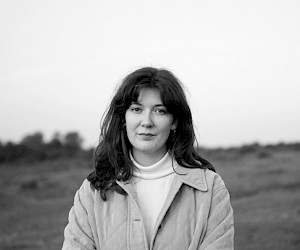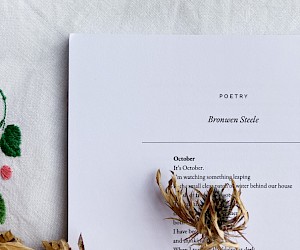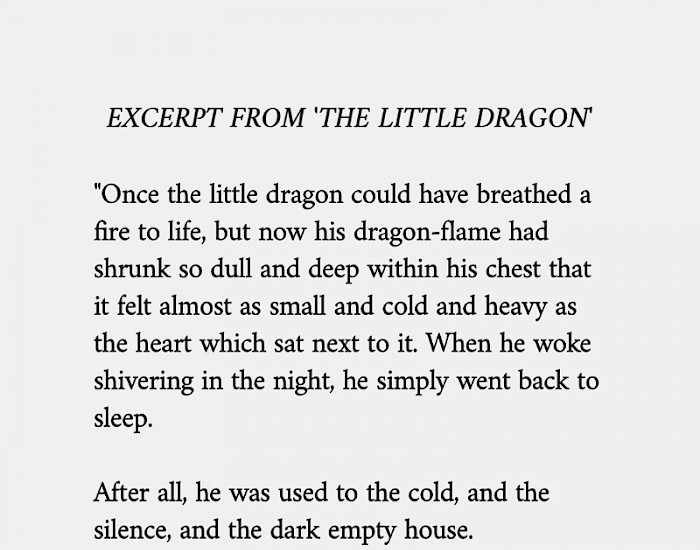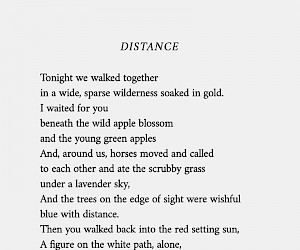Bronwen Steele Writer and poet based in England

Bronwen has a Foundation Diploma in Art and Design, with a specialism in fine art photography, and a BA in Philosophy and Theology from Oxford. She currently lives near Salisbury.
We had this interview with Bronwen in 2022.
Website
What brought you to your art?
I’ve always loved beauty. When I was little, my dad took me to the British Museum and he says that, when I saw the Elgin Marbles for the first time, I started to dance in front of them. I’ve always had a strong belief in God – and with that comes a belief in the existence of truth and beauty, and the way they nourish us as human beings. I think that when we encounter beauty it gives us an important sense of hope and meaning. I’ve been nurtured by the art and literature in my life, and I would love my work to do the same for others.
I see the world very much as an artist or a poet, in terms of interactions of colour and texture and light, and I feel things very deeply. I am always trying to wrestle the things I see and feel into language, or to capture them in some visual way. For me, being creative is a natural way of engaging with the world and it energises me in a way that very few things do.
I had initially planned to be a fine artist but, for the last few years, my writing and photography have been more of a focus and both are attempts to capture the world – either the world around me or my own internal world. I have a real love for children’s stories and fantasy, because, although in one sense they contain a lot which is make believe, I think they are able to capture, in a clear and captivating way, truths which can get confused and buried in apparently more ‘realistic’ stories.
How did you get the opportunity to participate in Cornelia's 'Artists in Residence Program'?
In 2021, my best friend sent me a link to a local competition. It was run by the ‘Her Salisbury Story’ project and involved writing a short story or poem inspired by a woman with a connection to the city of Salisbury. I wrote a short story about a little dragon who lives alone in a big, empty house — until the day a writer moves in to finish her book. The story ended up being about grief, loneliness, hope, and friendship. Cornelia was one of the judges and the prize was a chance to stay with her in Tuscany on a writer’s retreat. I already knew and loved some of Cornelia’s work, and the chance to meet her was a big motivation for entering. It was a challenge to squash a whole story into the required 1,000 words but, in the end, I was one of the three winners Cornelia picked to come and stay with her.

How did you like your time at Fraggina? Did you find inspiration there?
In our first hours at Volrerra, a spectacular thunderstorm rolled in across the hills to welcome us. Staying at Volterra with Cornelia felt like stepping into another world, one where odd, magical things might be possible. I did begin writing a story while at Volterra but, for me, the real fruit of the week came when I got stuck with it quite early on. I realised that I often hit a similar barrier when writing fiction and asked Cornelia if I could talk to her about it. She said two things in particular which struck me. Firstly, she challenged me to take my story and characters more seriously, and to ask more interesting and complex questions of them. Secondly, she spoke about her initial idea for her book, ‘The Thief Lord’, and about finding the thread of a story. For her, an interest in the way children think about being grown up and the way grown-ups think about being children became the thread of ‘The Thief Lord’. I realised that I would need more than just an interesting idea to write a story; I would need a thread which I was passionate about. And I began to wonder what that thread might be ... It was a transformative moment for me because I realised that, along with hope and beauty, some of the things which really catch my attention are loneliness, grief, and fear – and these weren’t things I had previously thought I wanted to write stories about.

What did you take home from there?
Realising that my writing might contain and explore much sadder themes than I had previously thought was a really important moment for me, and helped me to understand my writing much better. It’s something I continue to ponder, and I’m still trying to figure out what it looks like to write about these things well and with a sense of hope. One of the biggest things I took home from Volterra was a sense of confidence in my writing and in myself. My week there helped me to feel like maybe I am – and can be – a writer, and that is a real gift. I’m very grateful for my time there.